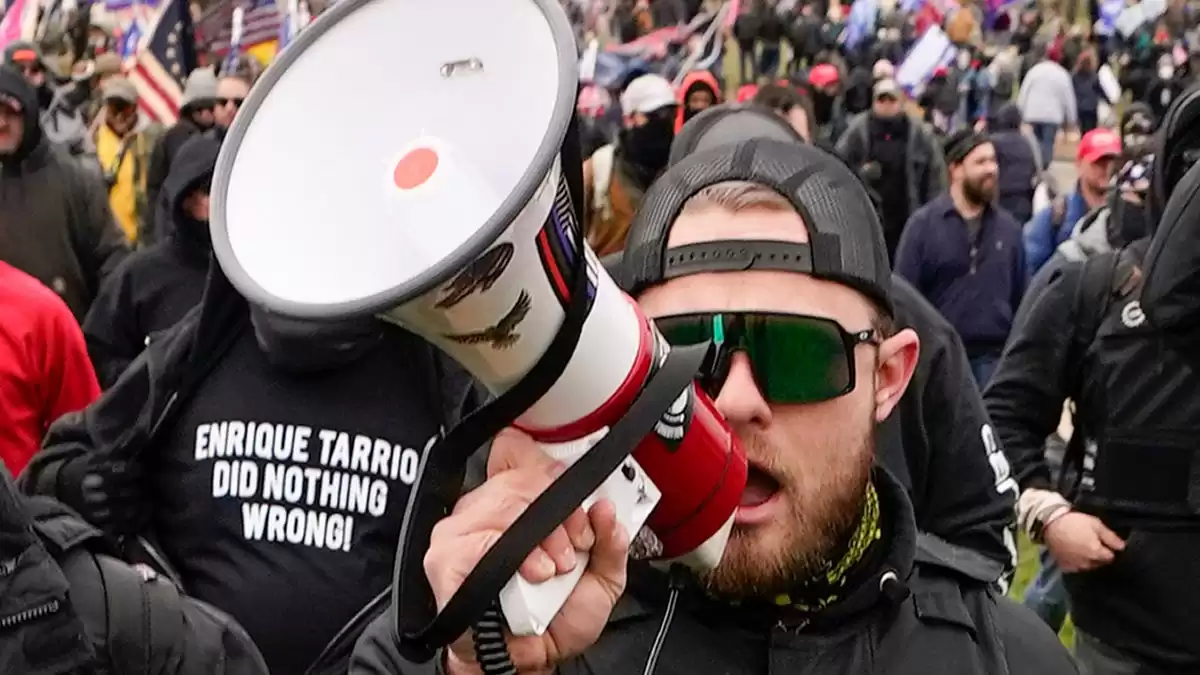Proud Boys members complain long prison sentences punish them for demanding trial
Long sentences for Capitol attack defendants have sparked appeals, with the Justice Department also appealing some as too short.
In the aftermath of the Capitol attack on January 6, 2021, discontent is brewing over the lengthy sentences handed down to the convicted leaders. Defendants have expressed their dissatisfaction by appealing their sentences, claiming that they are too long. On the other hand, the Justice Department has also appealed some sentences, arguing that they are too short. Consequently, the evidence and punishments related to this historic attack on the Capitol, the most severe in 200 years, will be subject to extensive scrutiny for months or even years to come.
Legal experts explain that defendants often appeal their sentences, while the government rarely does so. This discrepancy arises from the fact that judges possess significant discretion in determining appropriate punishments. Ethan Nordean, a member of the Proud Boys, recently received an 18-year prison sentence and promptly filed a notice of appeal. This sentence is the second-longest among those connected to the events of January 6, with Proud Boys leader Enrique Tarrio receiving the longest sentence of 22 years.
Joseph Biggs and Zachary Rehl, two co-defendants who are also members of the Proud Boys, were sentenced to 17 years and 15 years, respectively, on August 31. They have now filed a plea offer that they received from the government before their trial in October 2022. Interestingly, each of the Proud Boys defendants was initially offered a significantly shorter sentence in exchange for a guilty plea, which was less than half of what they ultimately received after their trial. Norman Pattis, the lawyer representing Biggs and Rehl, argues that the government's imposition of longer sentences for those who exercise their right to a trial constitutes a "trial tax" and violates their Sixth Amendment rights.
Legal experts note that it is quite common for plea agreements to offer shorter sentences before trial, as defendants are often encouraged to reach a deal due to the high rate of federal convictions at trial. Kendall Coffey, a former U.S. attorney, explains that the differences in sentences can be substantial. While some criticize this practice as penalizing those who go to trial, the law recognizes that defendants who accept responsibility for their crimes should be granted some leniency.
Barbara McQuade, a former U.S. attorney and current law professor, acknowledges that the argument about a "trial tax" is frequently raised but rarely successful. She explains that the plea deal offers a benefit to defendants in the form of a shorter sentence that they would otherwise face. By rejecting the plea deal, defendants forfeit the opportunity to receive this benefit and must face the consequences commensurate with their crimes.
Ethan Nordean's decision to appeal his sentence follows similar actions taken by at least eight members of the Oath Keepers, a group whose members, mostly former armed forces or law enforcement personnel, wore body armor and stormed the Capitol in a military-like formation. Additionally, the Justice Department is appealing the sentences of Oath Keeper members, arguing that they are too short. Kenneth Harrelson, Jessica Watkins, Roberto Minuta, David Moerschel, Stewart Rhodes, Kelly Meggs, Joseph Hackett, and Edward Vallejo have all filed appeals against their respective sentences.
Legal experts note that it is common for defendants to appeal their sentences, while prosecutors rarely do so. This discrepancy arises from the broad discretion that judges possess in fashioning sentences, following a 2005 Supreme Court decision that made sentencing guidelines advisory rather than mandatory. Unless a sentence significantly deviates from the guidelines range and the court fails to provide clear reasons for its calculation, sentences are typically upheld on appeal.











Comments on Proud Boys members complain long prison sentences punish them for demanding trial